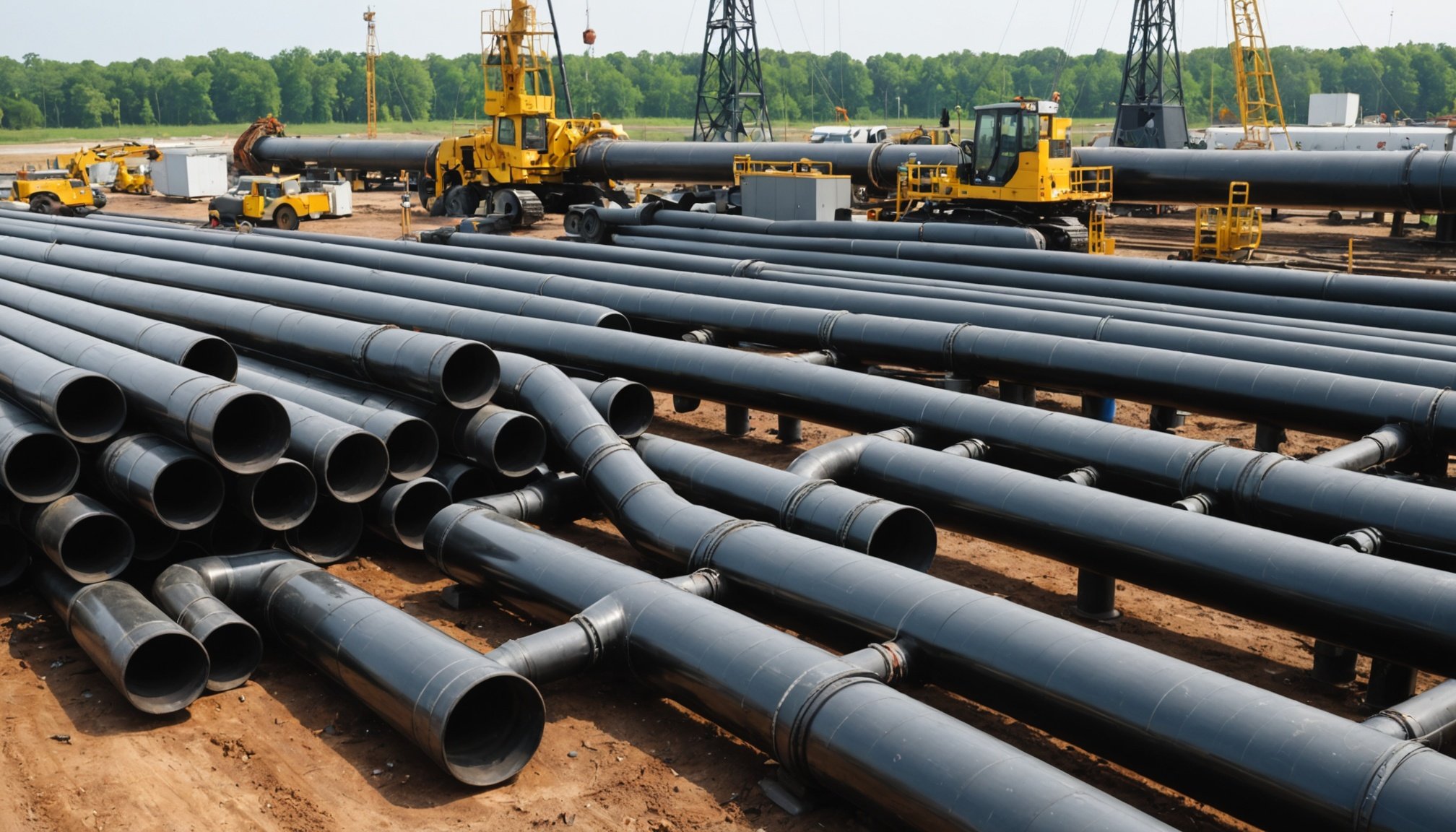Facing industry demands requires oil tube solutions that combine durability, precision, and innovation. Understanding the types, materials, and applications of these tubes reveals how they address challenges from wear to efficiency. This insight guides smarter choices, ensuring systems run smoother and last longer.
Analyzing Industry Applications of Oil Tubes and Related Components
Le site https://www.vallourec.com/our-solutions/oil-and-gas/ offers tailored solutions for the oil and gas sector, critical for pipelines, risers, and flowlines. These components ensure safe, efficient transport of hydrocarbons from production sites to processing facilities.
Also read : What Are the Effective Ways for UK Nonprofits to Leverage Crowdfunding Platforms?
Oil tubes significantly improve operational safety by preventing leaks and pressure failures. Their durability under harsh environments, made possible through advanced materials, supports continuous industry operations.
In automation, maintenance, and safety protocols, oil tubes are integral—they facilitate monitoring via sight gauges, and replacement kits help reduce downtime.
Have you seen this : How Can UK Real Estate Agents Use Virtual Reality for Property Showcases?
The industry benefits from innovative solutions that optimize extraction and transport processes, addressing sector challenges effectively. Their solutions are designed to meet the demanding standards of oilfield operations, especially in subsea environments where reliability is paramount.
Technical Specifications and Types of Oil Tubes
Oil tubes are manufactured using a variety of durable materials, including stainless steel, plastic polymers, and composite blends. The choice of material is tightly linked to performance requirements like chemical resistance, temperature resistance, and pressure ratings. For industrial applications, especially in oil tube for automotive use or heavy machinery, metals such as stainless steel are preferred for their oil tube durability and materials reliability, even under severe pressures.
A critical distinction exists between oil tubes designed for high-pressure versus low-pressure applications. High-pressure tubes often incorporate enhanced oil tube sealing technologies and rigorous tube integrity testing for oil tubes, vital to avoid failures. In contrast, low-pressure tubes—often selected for tasks like oil paint tube usage or oil tank sight gauge tube function—may use flexible or semi-transparent plastics to facilitate monitoring and maintenance.
Oil tube sizes range widely, suiting applications from compact oil dipstick tube importance in automotive settings to larger tubes for industrial oil tube industry equipment overview. Sealing technologies, such as double O-ring seals and welded closures, improve oil tube leakage prevention and compatibility with a spectrum of oils.
Manufacturing Processes and Design Innovations
Recent advances in oil tube manufacturing processes have introduced automation, precision extrusion techniques, and environmentally conscious methods that respond to the environmental impact of oil tubes. Oil tube design innovations increasingly prioritize durability, flexibility, and compatibility—key to both tube oil heater operation and oil tube recycling methods. Sophisticated surface treatments now resist corrosion, while novel sealing approaches enhance the preservation of oil paint in tubes or oil tube durability and materials longevity in industrial settings.
Innovative oil tube solutions for industry, including biodegradable oil tubes and coatings that block chemical intrusion, contribute to oil tube and environmental sustainability. In addition, design improvements address oil tube compatibility with various oil types, supporting seamless oil tube application in cosmetics and technical sectors alike.
Maintenance, Safety, and Troubleshooting
Effective oil tube inspection techniques, including visual checks and non-destructive tube integrity testing for oil tubes, are central to safe operation. For oil tank level indicators or industrial oil tube heaters, regular inspection helps spot common problems with oil tank sight tubes or oil tube sealing failures.
Troubleshooting focuses on rapid leak detection and addressing flow problems, using oil tube quality control protocols. In automotive and industrial settings, rigorous safety standards for oil tubes underscore handling, cleaning oil paint tubes, and routine maintenance. Proper oil tube storage temperature guidelines, adherence to transport regulations, and thorough oil tube markings and certifications further safeguard health, reliability, and the environment.
Integration, Replacement, and Industry Standards
Proper selection and installation of oil tube types is crucial for ensuring seamless oil tube integration and compatibility with various oils and machines. Using the right oil tube compatibility chart not only prevents leakage but also supports optimal performance across diverse industrial applications. Industry standards require that all oil tube manufacturing processes uphold strict quality control, with testing, certification, and adherence to regulatory frameworks such as safety standards for oil tubes and oil tube labeling standards.
When minor issues arise, simple DIY oil tube repair tips—such as sealing minor cracks or replacing seals—can extend tube life. For more significant problems, replacement parts for oil tube heaters or a full oil dipstick tube replacement may be necessary. Kits—including oil tank sight gauge tube installations and replacement sight gauge tube kits—streamline these processes for non-specialists and encourage regular oil tank maintenance procedures.
Attention to the environmental impact of oil tubes drives innovations like biodegradable oil tubes and improved oil tube recycling methods. Adopting sustainable oil tube manufacturing processes and best practices for oil tube storage or disposal reduces overall ecological footprint while supporting safer, longer-lasting industrial oil tube supplies.






